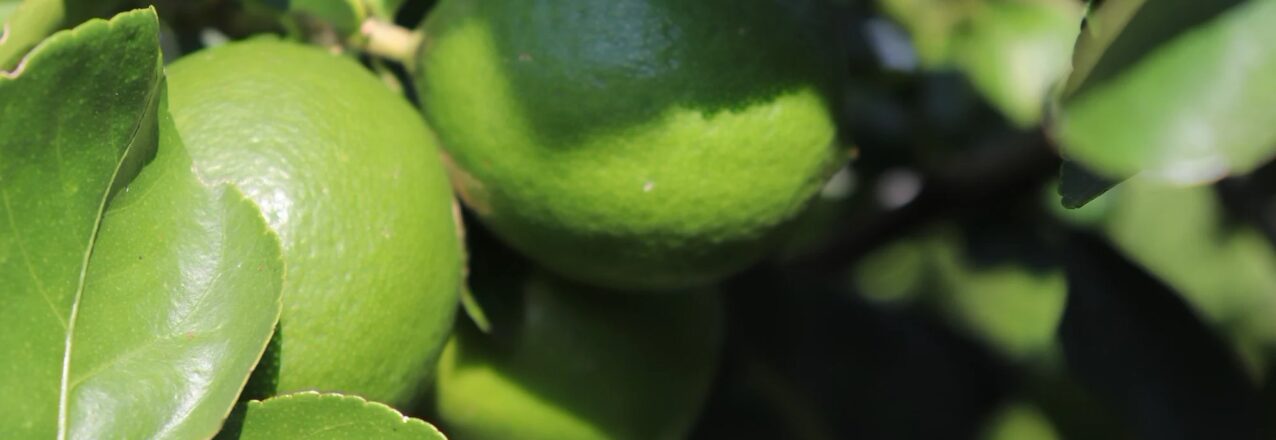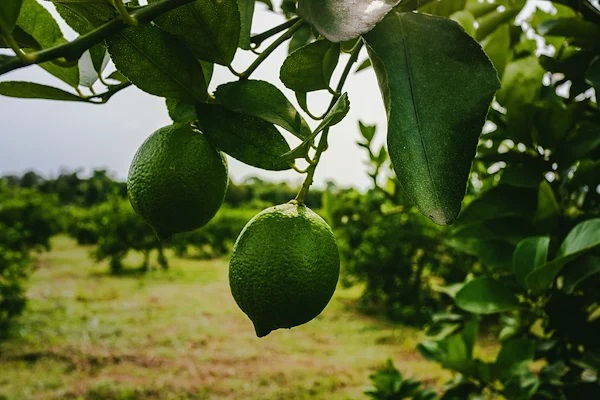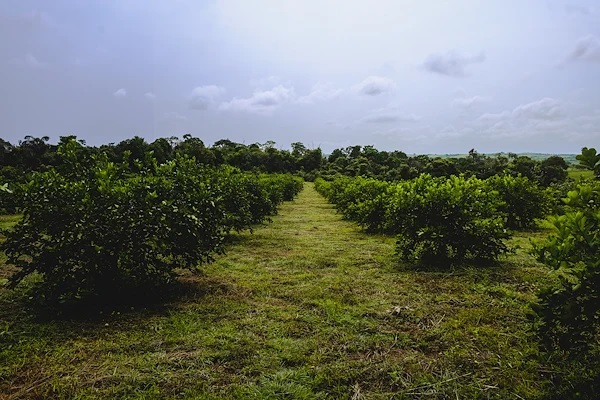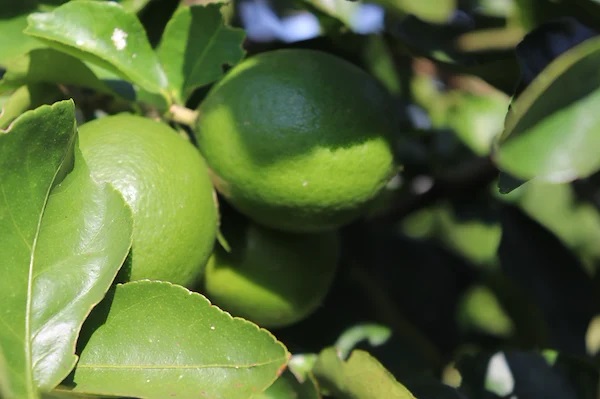A USAID facilitated Public Private Partnership looks to expand production and market linkages for lime producers in the Eastern Plains of Colombia
Colombian Limes
From mojitos to margaritas, limes have played a role in how society interacts for generations. Today, limes are ubiquitous with bars and restaurants and featured in cuisine across the globe thanks to a unique citrus taste, and the demand for limes grows every year.
Limes are one of Colombia’s top three fresh fruit exports behind banana and avocado, and over the last decade have become a cash crop for thousands of fruit farmers. The Tahiti lime (Citrus latifolia) is the most prevalent species grown in Colombia.
Due to Colombia’s varied climates and elevations, lime exports nearly doubled in the four-month period of January to April 2022, compared to the same period in 2021, according to government data. In 2021, Colombian farmers harvested more than 257,000 tons of lime from 17,500 hectares of orchards.
The Department of Meta, which is one of Colombia’s most important food growing regions, represents just 8% of the total. In Meta, which is known for sweeping plains and rivers, there are only seven lime orchards with export registrations and a lot of room for growth.
There are only seven lime orchards with export registrations in the Department of Meta, located in the Eastern Plains of Colombia.

“In Meta, if you want it, you can get it. The tahiti lime from Meta is good and a new product for many farmers here. I want to tell everybody about this big opportunity that is just beginning to be recognized internationally,” says Julio Eastman, CEO of Merlet, a Meta based fruit processor and exporter.
The Lime PPP
Thanks to a public-private partnership facilitated by USAID Land for Prosperity, Meta’s lime farmers are getting the chance to improve their businesses and access export markets. The PPP, which is valued at more than US$ 450,000, initially targets over 100 growers from Puerto Lleras and Puerto López municipalities.
Under the PPP, these two groups of smallholder farmers will receive new skills and knowledge about tree maintenance, post-harvest processing, and agribusiness to improve the management of 120 hectares of lime orchards. Two fruit exporters, including Merlet, signed onto the partnership to provide farmers with market channels abroad like Europe and USA.
In Meta, farmers face issues with proper orchard management, a lack of technical support, and little investment in irrigation systems. With no collective marketing schemes, each producer must pay logistical and operational costs to bring the product to the local market.
“Meta’s growers are facing challenges to deliver larger quantities on time and with traceability, that is, certification,” explains Eastman. “The opportunity is to work together on large deliveries. There is a lot of land in Meta, and the lime has already proven that it is a good product that our customers like and want more.”
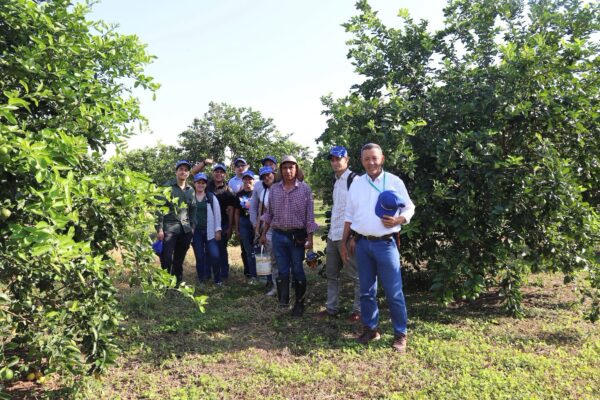
The Lime PPP in Meta seeks to strengthen the lime value chain in Meta by transferring skills and strengthening the knowledge of production systems and agribusiness. PPP stakeholders will develop the business capacities of producers and focus on youth.
Orchards Expanding
The PPP includes a chorus of public sector support, including the Rural Development and Territorial Renovation Agencies (ARD, ART), the National Agricultural Institute (ICA), and Agrosavia, which is the government’s agro research and innovation agency. In addition, the PPP is building on the work carried out by the Sinchi Amazonic Institute of Scientific Research (SINCHI), which is using European Union funding to expand coverage of lime orchards in Puerto Lleras.
“As an environmental research institute, SINCHI is participating in the PPP to transfer skills, raise awareness, and train on issues around environmental management, sustainable development, sustainable production systems, and guidelines for territorial management,” explains Uriel Murcia, agriculture investigator for SINCHI.

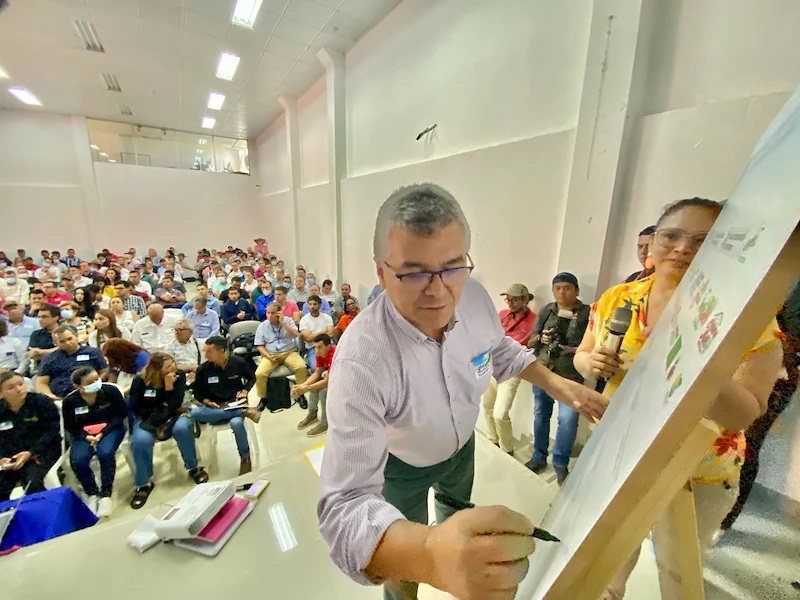
For the regional government’s Secretary of Agriculture, José Zárate, the PPP represents a valuable opportunity to learn about and improve understanding of export markets.
“Knowledge of the market does not mean we just produce more limes because they will pay us more, but also understanding that the international market is governed by supply and demand,” says Zárate.
“The stakeholders of this PPP also include the Chamber of Commerce and the academic partners. We have to capitalize on the allies who are here to facilitate how we view the market, allowing us to make better decisions and be more accurate.”



